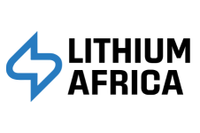Lake Resources’ Kachi Lithium Project to Cost US$544 Million
The PFS for Kachi, located in Argentina’s Catamarca province next to operations from five top producers, estimates capital costs of US$544 million.
Australia-listed Lake Resources (ASX:LKE) has released a prefeasibility study (PFS) for its Kachi lithium brine project in Argentina, estimating capital costs of US$544 million.
During its initial 25 years, Kachi is expected to produce 25,500 tonnes of battery-grade lithium carbonate equivalent (LCE) per year by direct extraction at an operating cost (OPEX) of US$4,178 per tonne. The study was based only on Kachi’s indicated resource of 1.01 million tonnes LCE at 290 mg/L lithium.
“The PFS highlights the cost competitive nature and scale of the flagship Kachi project using direct extraction, but has the benefit of producing high-purity product capable of attracting premium pricing, while being a leader in sustainable lithium desired by Tier-1 electric vehicle makers,” Managing Director Steve Promnitz said in an April 30 release.
Lake Resources has partnered with Lilac Solutions, which has received US$20 million in backing from the Bill Gates-led Breakthrough Fund to test a direct lithium extraction technology based on ion exchange; Lilac is also supported by MIT’s The Engine Fund. Results were incorporated into the PFS, which focuses on the engineering and costing of preferred process design options.
“With this PFS, we have demonstrated a non-utilities OPEX of US$2,500 per tonne of lithium carbonate. The remaining 40 percent of OPEX is primarily due to energy from natural gas at US$21/mmBTU. Given the excellent solar resource on site, we have a great opportunity to incorporate solar PV and reduce OPEX,” Lilac Solutions CEO Dave Snydacker said.
He added that opportunities also exist to reduce capital costs in upcoming engineering studies. Lilac’s direct lithium extraction process takes hours and not the standard nine to 18 months.
Lake Resources’ Kachi is located in Argentina’s Catamarca province, next to operations from five top producers, including producing assets from Livent (NYSE:LTHM) and Orocobre (ASX:ORE,TSX:ORL).
The recently released PFS indicates a pre-tax net present value (NPV) at an 8 percent discount of US$1,050 million and a 25 percent internal rate of return (IRR); its post-tax NPV comes in at US$748 million at an 8 percent discount with a 22 percent IRR.
Annual earnings before interest, taxes, depreciation and amortization (EBITDA) for the project is US$155 million, with life-of-project EBITDA of US$3,890 million.
Looking ahead, Promnitz said the PFS, together with samples from the pilot plant, will help advance discussions with offtakers and financiers.
“What’s important about the PFS is that shows that this technology is commercial and it shows that it’s cost-competitive with brine produces just on an AISC basis,” Prominiz said during a conference call. “This proves to the market that this is a major project, and we don’t just have one — we’ve got four of them.”
Lake Resources’ flagship Kachi asset is one of three brine projects 100 percent owned by the company in Argentina. It has over 200,000 hectares of leases, including one hard-rock project.
The next steps for Kachi involve delivering product samples from pilot plant modules to potential offtakers. Lake Resources also believes the PFS results indicate the need for a definitive feasibility study (DFS) looking at further opportunities to lower operating and capital costs, potentially with a staged start at 10,000 tonnes per year. The completion of a DFS is targeted potentially by the middle of next year.
Shares of Lake Resources jumped 10 percent following the news, and although they retreated on Monday (May 4), the stock is currently at AU$0.03 — up 10 percent year-to-date.
Don’t forget to follow us @INN_Australia for real-time updates!
Securities Disclosure: I, Priscila Barrera, hold no direct investment interest in any company mentioned in this article.
Editorial Disclosure: Lake Resources is a client of the Investing News Network. This article is not paid-for content.





